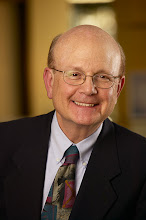As a consultant on fertility issues for the Choice Mom community, choicemoms.org, I am frequently asked questions about treatment options for single women who are attempting to achieve pregnancy without a partner.
Q. What to do if my lining is thin on clomiphene (Clomid)?
One recent query sent to me by Choice Moms liaison Mikki Morrissette was about a woman whose RE clinic reported that her uterine lining was affected by taking Clomid, which had barely reached 6mm for her previous IUI. He recommended that she take injections [one option: Follistim]. She wasn't sure if the RE was erring on the side of too much intervention. She was concerned about the greater likelihood of having twins. And she was afraid that she would miss her next cycle while she waited to take the "training" required for the injections.
A. Success rates are not reported for this type of treatment so except for the doctor's pride this would not be recommended for the reason of increased success rates. I think most REs will actually try the most conservative treatments first. Of course there will always be someone who rushes patients into the highest level of treatment right away. But, as I point out in my book, Conceptions & Misconceptions," the treatment has to make sense and even a lay person can get a sense of what's appropriate. If there is a question, one can always get a second opinion.
The risk of multiples is increased over Clomid. That is true, but if the injectables are used judiciously the risk can be reduced, especially the risk of the higher order multiple pregnancies like triplets and above.
The injection training can be done in a few minutes and not really a reason for delaying a cycle.
But there is another alternative that you can ask for and do it in this cycle. If you use estrogen for five days after the last Clomid it may adequately thicken the endometrium and if it doesn't you can go to injectables next cycle.
Arthur L. Wisot, M. D.
Reproductive Partners Medical Group, Inc.
A Southern
Credits –
This information is provided by Arthur L. Wisot, M.D., F.A.C.O.G., one of the team of outstanding fertility doctors at the Southern California fertility center, Reproductive Partners Medical Group. For more information on IVF and the many available infertility treatments please visit www.reproductivepartners.com.




